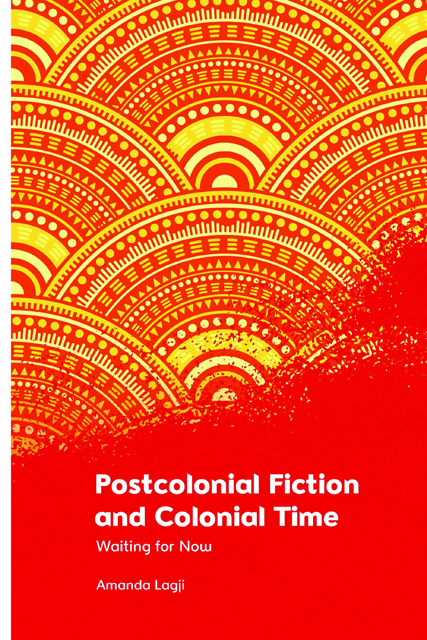Book contents
- Frontmatter
- Contents
- Acknowledgements
- Introduction
- 1 Waiting at the Heart of Colonial Time Regimes
- 2 Projects and Promissory Notes: The Waiting Rooms of V. S. Naipaul and Nadine Gordimer
- 3 Marooned Time: Disruptive Waiting and Idleness
- 4 Gendered Timescapes of Waiting: Patience and Urgency in Novels of Disillusionment
- 5 ‘Strategic Waiting’ and Reconciliation in the Aftermath of Conflict
- Conclusion
- Bibliography
- Index
1 - Waiting at the Heart of Colonial Time Regimes
Published online by Cambridge University Press: 25 April 2023
- Frontmatter
- Contents
- Acknowledgements
- Introduction
- 1 Waiting at the Heart of Colonial Time Regimes
- 2 Projects and Promissory Notes: The Waiting Rooms of V. S. Naipaul and Nadine Gordimer
- 3 Marooned Time: Disruptive Waiting and Idleness
- 4 Gendered Timescapes of Waiting: Patience and Urgency in Novels of Disillusionment
- 5 ‘Strategic Waiting’ and Reconciliation in the Aftermath of Conflict
- Conclusion
- Bibliography
- Index
Summary
The Nellie, a cruising yawl, swung to her anchor without a flutter of the sails, and was at rest. The flood had made, the wind was nearly calm, and being bound down the river, the only thing for it was to come to and wait for the turn of the tide.
Joseph Conrad, Heart of Darkness (1899)Heart of Darkness opens with an image of stillness: The Nellie is anchored, the sails are stationary, and the crew mirrors the ship’s immobility as they rest at ease on the deck. Barges are ‘drifting up with the tide’, but despite this ostensible movement, the narrator remarks that the ‘tanned sails … stand still’ –unsurprising given that the air, ‘condensed into a mournful gloom’, is ‘brooding motionless’ over the city of London. Caught in this stillness, the narrator remarks, the only option is to wait for the tide to turn.
Heart of Darkness thus begins by evoking waiting, and this waiting is the impetus for Marlow’s tale, which comprises the rest of the text. The framing narrator explicitly makes the connection between storytelling and waiting. After Marlow remarks, ‘“The conquest of the earth, which mostly means the taking it away from those who have a different complexion or slightly flatter noses than ourselves, is not a pretty thing when you look into it too much”’, the narrator observes, ‘We looked on, waiting patiently –there was nothing else to do till the end of the flood.’ The period of waiting is a time of forced contemplation for Marlow and his listeners as Marlow’s recollections oblige them to look into the darkness of colonial conquest and exploitation. The waiting begins while ‘[t]he day was ending in a serenity of still and exquisite brilliance’, at twilight –a time of day that will becoming increasingly important over the course of this chapter. During the wait, as light and dark intermingle into an inseparable gloom, Marlow reflects on the ‘very old times, when the Romans first came here, nineteen hundred years ago –the other day’, strikingly evoking a paradoxically elongated and compressed sense of time. The suspension of day and night, mirroring the suspension of the tide and the suspension of time during their waiting, prompts Marlow to reflect that with a long view of time and history, it seems as though the ‘darkness was here yesterday’.
- Type
- Chapter
- Information
- Postcolonial Fiction and Colonial TimeWaiting for Now, pp. 33 - 57Publisher: Edinburgh University PressPrint publication year: 2022



